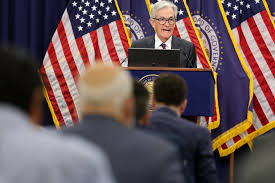Introduction
The Federal Open Market Committee (FOMC) is a vital component of the United States’ monetary policy framework, influencing not only the U.S. economy but also global markets, including those in South Africa. The FOMC meets regularly to discuss interest rates and economic projections, which can lead to significant changes in market behavior and investor sentiment. Understanding the FOMC’s decisions and motivations is crucial for economists, investors, and policy-makers alike, especially in a time of heightened economic uncertainty.
Recent Developments
On September 20, 2023, the FOMC concluded its latest meeting and announced its decision to maintain the federal funds rate at a range of 5.25% to 5.50%. This decision reflects ongoing concerns about inflation, which remains above the committee’s long-term target of 2%. Following the announcement, the FOMC chair, Jerome Powell, highlighted that while inflation has shown signs of moderation, the committee is committed to taking necessary actions to ensure it continues to decline.
The decision to hold rates steady comes amid mixed signals in the U.S. economy. Although consumer spending remains robust, supply chain issues and labor market shortages have given rise to inflationary pressures. South African markets, particularly the currency and stock prices, reacted swiftly to the announcement, with the Rand showing signs of volatility in response to the anticipated effects of U.S. rate policies on emerging markets.
Implications for South Africa
The FOMC’s decisions are particularly relevant for South Africa due to the close ties between U.S. and South African markets. When U.S. interest rates rise, it often leads to a stronger U.S. dollar, which can negatively impact emerging market currencies like the Rand. Concurrently, higher borrowing costs in the U.S. can lead to decreased foreign investment in South Africa, affecting the local economy and job growth.
As South Africa grapples with its own inflationary concerns, the Reserve Bank has to consider the FOMC’s direction carefully. Analysts suggest that continued FOMC rate stability may provide a window of opportunity for local interest rate cuts, potentially stimulating economic growth.
Conclusion
The FOMC plays a pivotal role in shaping not only U.S. monetary policy but also the broader global economic landscape, including that of South Africa. As markets adapt to the committee’s decisions, staying informed about the FOMC’s future meetings and economic forecasts will be essential for investors, economists, and policymakers alike. The next FOMC meeting is scheduled for November 2023, where further insights into U.S. economic prospects and inflationary trends will be revealed, influencing global markets once again.


